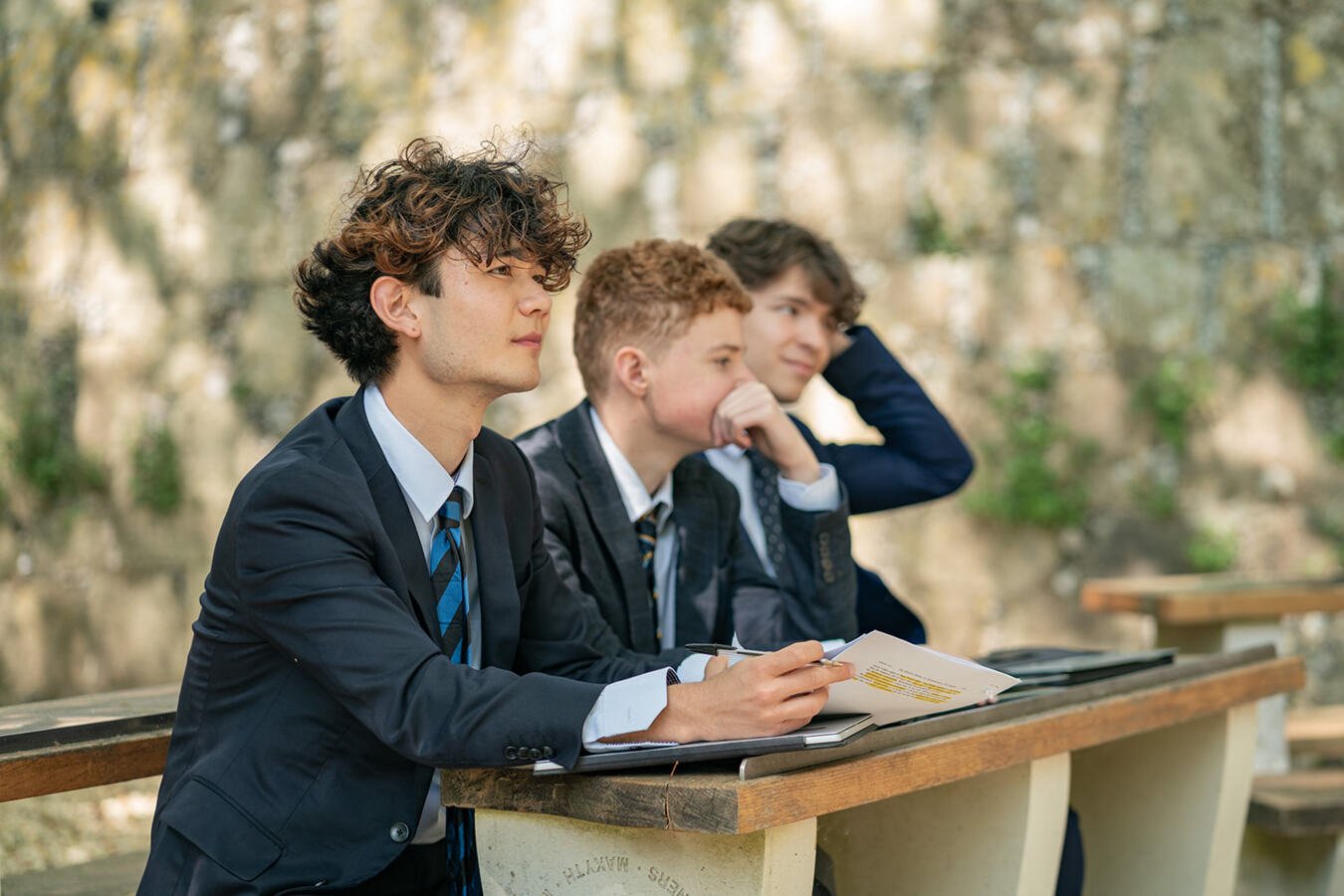
'Unexamined, meaningfully timetabled, deeply embedded. Div is the intellectual root of our community and what distinguishes a Winchester education'
Div is at the heart of the education we offer. It defines the liberal character of Winchester academic life. Pupils engage in discussion and debate, and embrace the idea of learning for its own sake, unrestrained by any examination syllabus. Div refers both to the subject, and to a form of about fifteen pupils from all different boarding houses, whose teacher is referred to as the Div don. Div dons are drawn from the whole range of different academic departments.
Div is multi-disciplinary in scope. In Years 9 to 11, it provides pupils with an introduction to a broad sweep of History, from classical times to the Early Modern period. It also encompasses English literature and language, the History of Science and Art, Religious Studies and PSHEE.
In the Sixth Form, each Div don determines the programme. The material selected for inclusion is equally likely to be artistic, literary, philosophical, political, sociological, art-historical, ethical, religious or musical.
Through this combination of disciplines, the school seeks to fashion discriminating learners. Div helps pupils to think critically, to question and assimilate complex ideas, and to articulate their thoughts with clarity and confidence, both on paper and orally in front of their peers.
Lessons and weekly written assignments are devised for the individual pupils in each Div. Sometimes, the group’s own interests and specialisms steer the direction studies take.
Meeting almost every day, pupils in the lower school spend more time with their Div don than any of their other teachers. In the Sixth Form, Div is taken by all pupils alongside their A level subjects.
We believe that Div helps to make our pupils better prepared to face the demands and challenges of the modern world.
As the Good Schools Guide 2019 noted, "Winchester is sometimes described as, ‘very traditional’, the implication being that this is not necessarily a good thing. The reverse is true. It is the College’s enlightened (but not unquestioning) commitment to the enduring principles of a ‘traditional’ liberal education, as embodied by Div, that parents, dons and boys value the most. Ironically, Div’s cross-curricular, discursive and research-led ethos now seems strikingly modern."

“Outside my chosen academic subjects, I have worked my way through parts of Beowulf in its original Old English, dabbled in Aristotelian philosophy, and held countless debates on politics, history, and art.”


 Back to Learning
Back to Learning